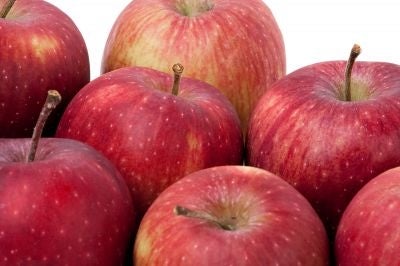Apples, pears and cauliflower may reduce stroke risk

If you want to reduce your risk for stroke, grab an apple, pear or other white-fleshed fruit or vegetable, according to a new study.
Dutch researchers set out to discover a possible link between various colored fruits and vegetables - the color reflects the presence of beneficial phytochemicals - and stroke risks. In a study of more than 20,000 adults over a period of ten years, the scientists found that people who regularly ate white-fleshed fruits and vegetables had a 52 percent lower risk of stroke compared to those who didn't.
Interestingly, the researchers found that adding as little as a couple of apple slices to your daily diet could reduce your stroke risk by 9 percent. Other foods in the white category include bananas, cauliflower, chicory, and cucumbers, but not potatoes, which are considered a starch.
The study was published September 15 in the journal Stroke: Journal of the American Heart Association.
While white-fleshed fruits and vegetables may help curb stroke risk, another study found that consuming green leafy vegetables can reduce your risk of developing type 2 diabetes. The research was published last year in the British Medical Journal.
Join our commenting forum
Join thought-provoking conversations, follow other Independent readers and see their replies
Comments
Bookmark popover
Removed from bookmarks